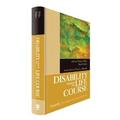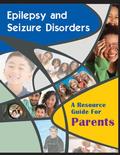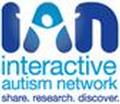News / Document Search Results
5/16/2014
Helping Parents, Helping Children: Two-Generation Mechanisms
The Spring 2014 issue of Future of Children, Helping Parents, Helping Children: Two-Generation Mechanisms (Vol. 24, Issue 1), focuses on programs that simultaneously serve disadvantaged parents and children with high-quality interventions. Because the home environment is so important for children's development, many people think such "two-generation" programs can be more effective and efficient than programs serving children and parents individually. The issue discusses six mechanisms through which parents and the home environment are thought to influence children's development: stress, education, health, income, employment, and assets. See also, the accompanying policy brief, Early Stress Gets under the Skin: Promising Initiatives to Help Children Facing Chronic Adversity (Spring 2014), by Ross A. Thompson and Ron Haskins.
5/16/2014
Making the Link Between Health and School Readiness
Promoting healthy development and treating children's health issues enhances their readiness for school. The Office of Head Start's National Center on Health released a new interactive online tool, Making the Link Between Health and School Readiness (2014), which is designed to help early childhood program leaders integrate meaningful health strategies with school readiness goals.
5/16/2014
Parent Guides on Special Education Dispute Resolution
Four Parent Guides on Dispute Resolution options under the Individuals with Disabilities Education Act (IDEA) are available from the National Center on Dispute Resolution in Special Education (CADRE) in both English and Spanish. The guides are intended for parents of children ages 3-21. The topics covered include mediation, due process hearings, written State complaints, and resolution meetings
5/16/2014
Tips for Keeping Children Safe: A Developmental Guide
This resource, Tips for Keeping Children Safe: A Developmental Guide (2014), describes daily routines for children within four age groups (infants, mobile infants, toddlers, and preschoolers) and provides safety tips that specifically address the developmental needs of children in a specific age group, as well as tips that apply to all children. It was developed by the Office of Head Start's National Center on Health for early childhood staff working with young children in classroom environments.
1/13/2014
Health U.: A Nutrition Curriculum for Teenagers with Intellectual and Developmental Disabilities
by RD, Linda Bandini PhD
The Health U. curriculum contains age-appropriate nutrition education materials for adolescents and young adults with mild to moderate intellectual disabilities. The goal of the Health U. program is to encourage a healthy lifestyle.
1/1/2014
Family Competencies
Competencies for LEND Family trainees, created in 2006.

4/24/2012
Building a National Agenda for Supporting Families with an Individual with Developmental or Intellectual Disabilities
The report includes as summary of the 2011 Wingspread proceedings as well as concrete recommendations to address the wide range of needs of families. The authors encourage the use of this report to further discussions and action planning, energize grassroots participation, and to encourage collaboration around specific action steps at the local, state and national levels needed to support families.

12/1/2011
Disability Across the Life Course
New Book by Tamar Heller and Sarah Parker Harris, Institute on Disability and Human Development, University of Illinois at Chicago
In addition to providing an overall theoretical and historical background, this book addresses disability across the life course through delineation of various age phases from prenatal periods to death. Cross-cutting issues highlighted are: family; health; policy, legislation, and service; and self-determination and participation.

5/24/2011
Ready and Able: Addressing Labor Market Needs and Building Productive Careers for People with Disabilities Through Collaborative Approaches
People with disabilities can work and want to work. Increasing the employment of people with disabilities produces significant benefits to the economy, the nation, and people with disabilities themselves. This resource is the product of research with the goal to identify successful elements of strategies and offer lessons that can be learned by employers and employer organizations, workforce development and disability service organizations, and federal, state, and local policymakers.
5/13/2011
Shouldn't School Be Safe?
A guide for parents on prevention, detection and response to restraint, seclusion or other aversive interventions.
5/10/2011
Oral Health Fact Sheets for Dental, Medical, Parents and Caregivers of Children with Autism Spectrum Disorder
Fact sheets for 14 mild to moderate manifestations of special needs conditions have been developed for Dental Professionals, Medical Professionals & Parents and Caregivers. Content for the fact sheets were developed by a group of experts affiliated with the University of Washington and the Washington State Department of Health - Oral Health Program. These three facts sheets are specific to children with ASD.
5/10/2011
Women be Healthy
Women be Healthy can be used to enable women with developmental and intellectual disabilities to be more active participants in health care. The curriculum emphasis is on health education, relaxation techniques for health exams, and assertiveness and empowerment training

2/28/2011
Epilepsy and Seizure Disorders: A Resource Guide for Parents
The guide provides parents and caregivers with information and tools they can use to better understand and manage their child's seizure disorder. Topics include understanding epilepsy / seizure disorders, health care access to services, advocacy and support and tools to aid in organizing health information.

7/13/2009
IAN Research Report: Family Stress Part 1
Thousands of participating parents who completed the Interactive Autism Network (IAN) Parental Depression History Questionnaire have shared their experiences of the challenges involved with raising a child on the autism spectrum

7/13/2009
IAN Research Report: Family Stress Part 2
In IAN's recent report, ?Family Stress ? Part 1,? they described the experiences of thousands of parents who had completed the IAN Parental Depression History Questionnaire, sharing the impact on their lives of raising a child on the autism spectrum
6/29/2009
Secondary Transition Toolkit from The NH Coalition for Citizens With Disabilities
This Tool Kit is designed to help families and youth learn about the transition planning process for youth who have an Individualized Education Program (IEP). It provides an overview of the laws relating to transition as well as best practices







